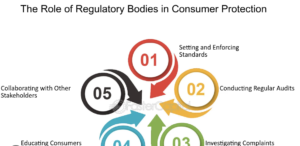In the rapidly evolving digital landscape, online casinos have become an increasingly popular form of entertainment and a topic of intense discussion. As the accessibility and convenience of these virtual gaming platforms continue to grow, it’s crucial for individuals to understand the legal implications surrounding their operation. In this comprehensive guide, we will delve into the intricacies of online casino legality, exploring the regulations, licensing requirements, and the potential risks associated with engaging in online gambling.

Online Casinos
Contents
- 1 Understanding the Legality of Online Casinos
- 2 Online Gambling Regulations Worldwide
- 3 Legalization of Online Casinos in Different Countries
- 4 The Role of Licensing and Regulatory Bodies
- 5 Common Misconceptions about Online Casino Legality
- 6 How to Determine if an Online Casino is Legal
- 7 The Risks of Playing on Illegal Online Casinos
- 8 Ensuring a Safe and Legal Online Gambling Experience
- 9 Conclusion: The Future of Online Casino Legalization
Understanding the Legality of Online Casinos
The legality of online casinos is a complex and multifaceted issue that varies significantly across different jurisdictions. While some countries have embraced the concept of online gambling and have established clear regulatory frameworks, others have taken a more cautious or even prohibitive approach. Understanding the legal landscape is essential for ensuring a safe and responsible online gambling experience.
Online Gambling Regulations Worldwide
To provide a global perspective, let’s examine the regulatory landscape of online gambling around the world:
- United States: The legality of online casinos in the US is a patchwork of state-level regulations. Some states, such as New Jersey, Nevada, and Pennsylvania, have legalized and regulated online gambling, while others maintain a more restrictive stance.
- European Union: The EU has a decentralized approach to online gambling, with individual member states responsible for their own regulations. Countries like the United Kingdom, Malta, and Gibraltar have emerged as prominent hubs for online casino licensing and regulation.
- Asia: The legal status of online casinos in Asia varies greatly, with countries like Singapore and Malaysia prohibiting online gambling, while others, such as the Philippines and Macau, have established regulatory frameworks.
- Australia: Australia has a more permissive approach to online gambling, with licensed and regulated online casinos serving the domestic market.
Legalization of Online Casinos in Different Countries
The legalization of online casinos is an ongoing process, with various countries at different stages of implementation. Some key examples:
- United Kingdom: The UK has a well-established and regulated online gambling market, with the Gambling Commission overseeing the licensing and operation of online casinos.
- Malta: Malta has emerged as a leading jurisdiction for online casino licensing, with a robust regulatory framework and a thriving online gambling industry.
- Canada: Canada has a patchwork of provincial-level regulations, with some provinces, such as Ontario, allowing and regulating online casinos, while others maintain a more restrictive stance.
- India: India’s online gambling landscape is complex, with some states permitting certain forms of online gambling, while others have banned it entirely.
The Role of Licensing and Regulatory Bodies
Licensing and regulatory bodies play a crucial role in ensuring the legitimacy and safety of online casinos. These organizations are responsible for establishing guidelines, issuing licenses, and monitoring the activities of online gambling operators. Some of the prominent regulatory bodies include:
- United Kingdom Gambling Commission (UKGC)
- Malta Gaming Authority (MGA)
- Kahnawake Gaming Commission (Canada)
- Alderney Gambling Control Commission (Channel Islands)

The Role of Licensing and Regulatory Bodies
Common Misconceptions about Online Casino Legality
Despite the growing acceptance of online gambling, there are still several misconceptions and myths surrounding its legality. These include:
- Online Casinos are Universally Illegal: This is a common misconception, as the legality of online casinos varies significantly across different jurisdictions.
- All Online Casinos are Unregulated: While there are certainly unregulated and illegal online casinos, many reputable and licensed operators adhere to strict regulatory standards.
- Online Gambling is Entirely Risk-Free: Online gambling, like any form of gambling, carries inherent risks, and players should always exercise caution and responsible gambling practices.
How to Determine if an Online Casino is Legal
To ensure a safe and legal online gambling experience, it’s crucial to thoroughly research and verify the legitimacy of an online casino. Some key factors to consider include:
- License and Regulatory Oversight: Look for online casinos that hold valid licenses issued by reputable regulatory bodies, such as the UKGC or MGA.
- Reputation and Player Reviews: Consult online forums, review sites, and industry publications to gauge the reputation and customer satisfaction of an online casino.
- Security and Data Protection: Ensure that the online casino uses robust security measures, such as encryption and data protection protocols, to safeguard player information.
The Risks of Playing on Illegal Online Casinos
Engaging with unlicensed and unregulated online casinos can expose players to significant risks, including:
- Financial Losses: Illegal online casinos may not have the necessary safeguards in place to protect player funds, leading to potential financial losses.
- Lack of Fairness and Transparency: Unregulated online casinos may not adhere to fair gaming practices, potentially rigging the games in their favor.
- Legal Consequences: In some jurisdictions, participating in illegal online gambling can result in legal penalties or fines.
- Cybersecurity Threats: Illegal online casinos may not prioritize data security, leaving players vulnerable to cyber threats, such as identity theft or fraud.
Ensuring a Safe and Legal Online Gambling Experience
To enjoy a safe and responsible online gambling experience, it’s essential to take the following steps:
- Research and Verify Legality: Thoroughly research the online casino’s licensing, regulatory oversight, and reputation before engaging in any gambling activities.
- Prioritize Player Protection: Look for online casinos that prioritize player protection, such as implementing responsible gambling tools and offering self-exclusion options.
- Practice Responsible Gambling: Set strict personal limits, take breaks, and be aware of the potential risks associated with online gambling.
Conclusion: The Future of Online Casino Legalization
As the online gambling industry continues to evolve, the landscape of online casino legality is expected to become increasingly complex and nuanced. While some jurisdictions have embraced the potential of online gambling, others remain cautious or resistant to its legalization. Nonetheless, the global trend seems to be moving towards a more regulated and responsible approach to online casino operations.
To ensure a safe and legal online gambling experience, I encourage you to thoroughly research and verify the legitimacy of any online casino before engaging in any gambling activities. By making informed decisions and prioritizing player protection, you can enjoy the excitement of online gambling while minimizing the associated risks. Explore our resources to learn more about the legal landscape of online casinos and how to identify reputable, licensed operators.
